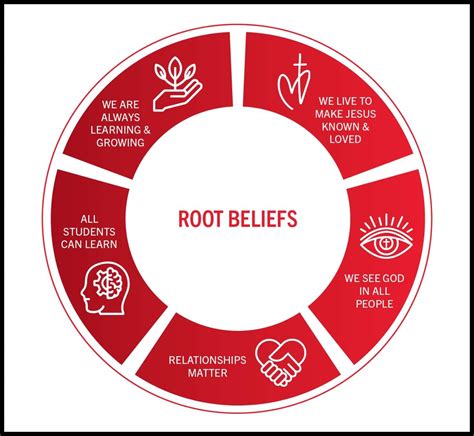In the vast tapestry of language, words carry not only meaning but also traces of their etymological roots, revealing intriguing connections between our vocabulary and the underlying threads of human thought. One such root is “cred,” stemming from the Latin “credere,” which means “to believe.” This powerful word root has woven its way into countless terms, each bearing a vestige of the fundamental concept of belief.

Unveiling the words that contain the root “cred,” we embark on a journey into the realm of human cognition and the enduring power of belief:
- Credence: Firm belief in the truth or existence of something.
- Credible: Worthy of belief; reliable.
- Credulous: Too ready to believe; gullible.
- Incredible: Not credible; beyond belief.
- Credit: To believe in the truth or existence of something.
- Creditor: A person to whom money is owed; one who believes in another’s ability to repay.
- Accreditation: Official approval or recognition; a validation of belief.
- Creed: A formal statement of beliefs; a guiding principle of faith.
- Credentials: Documents or evidence proving one’s qualifications or beliefs.
Belief plays a pivotal role in shaping our thoughts, actions, and interactions with the world around us. It influences our perception of reality, drives our motivation, and guides our decision-making.
- Belief in oneself: Confidence in one’s abilities and potential empowers individuals to overcome challenges and achieve their goals.
- Belief in others: Trust and belief in others form the foundation of strong relationships and collaborative endeavors, fostering cooperation and mutual support.
- Belief in ideas: Embracing innovative ideas and taking risks based on our beliefs can lead to groundbreaking discoveries and societal advancements.
- Belief in values: Adherence to ethical principles and moral values shapes our character and guides our actions, fostering honesty, integrity, and justice.
Psychologists have extensively studied the nature and function of belief within the human psyche.
- Cognitive dissonance: The psychological discomfort experienced when our beliefs conflict with our actions or new information.
- Confirmation bias: The tendency to seek out information that supports our existing beliefs while overlooking contradictory evidence.
- Cognitive restructuring: A therapeutic technique that challenges irrational beliefs and replaces them with more adaptive ones.
- Mindfulness meditation: A practice that cultivates awareness of the present moment and reduces the influence of negative beliefs on our thoughts and emotions.
The concept of belief has far-reaching applications in various domains, including education and business:
-
Education:
- Cultivating intellectual curiosity: Encouraging students to question, explore, and develop their own beliefs fosters critical thinking and a lifelong love of learning.
- Building self-confidence: Belief in students’ abilities empowers them to take risks and persevere in the face of challenges.
-
Business:
- Building trust and relationships: Establishing a culture of belief and trust among employees and customers creates a strong foundation for collaboration, innovation, and customer loyalty.
- Inspiring motivation: Belief in a shared vision and purpose drives employee engagement, productivity, and organizational success.
In an era marked by skepticism and uncertainty, cultivating belief becomes increasingly important. Here are some effective strategies:
- Seek evidence and facts: Examine the available evidence before forming strong beliefs. Consider diverse perspectives and be open to changing your beliefs based on new information.
- Practice open-mindedness: Embrace curiosity and willingness to consider new ideas and experiences. Challenge your assumptions and seek to expand your understanding.
- Cultivate resilience: Belief in oneself and the possibility of overcoming challenges can provide the resilience needed to navigate difficult times.
- Surround yourself with positive influences: Belief is contagious. By connecting with individuals who share your beliefs and values, you reinforce your own convictions.
While the power of belief is undeniable, certain pitfalls can undermine its effectiveness:
- Blind faith: Uncritically accepting beliefs without questioning their validity.
- Intolerance: Denying the beliefs of others and rigidly adhering to one’s own convictions.
- Bias: Allowing personal preferences or preconceptions to distort our beliefs.
- Overconfidence: Believing in oneself to the point of arrogance, disregarding potential limitations and feedback from others.
The root “cred” has woven its way into the tapestry of our language, reflecting the fundamental importance of belief in our cognitive and social lives. Belief empowers us, shapes our experiences, and drives our actions. By understanding the nature and function of belief, we can cultivate a mindset that enhances our well-being, fosters collaboration, and propels us toward a more just and equitable world.
Table 1: Common Words Containing the Root “Cred”
| Word | Meaning |
|---|---|
| Credence | Firm belief |
| Credible | Worthy of belief |
| Credulous | Too ready to believe |
| Incredible | Beyond belief |
| Credit | To believe |
| Creditor | A person to whom money is owed |
| Accreditation | Official approval |
| Creed | A formal statement of beliefs |
| Credentials | Documents or evidence of qualifications |
Table 2: The Psychology of Belief
| Concept | Description |
|---|---|
| Cognitive dissonance | Discomfort experienced when beliefs conflict with actions or information |
| Confirmation bias | Seeking out information that supports existing beliefs |
| Cognitive restructuring | Challenging irrational beliefs |
| Mindfulness meditation | Cultivating awareness of the present moment |
Table 3: Applications of Belief
| Domain | Application |
|---|---|
| Education | Cultivating intellectual curiosity, building self-confidence |
| Business | Building trust and relationships, inspiring motivation |
Table 4: Strategies for Cultivating Belief
| Strategy | Description |
|---|---|
| Seek evidence and facts | Examine available evidence before forming beliefs |
| Practice open-mindedness | Embrace curiosity and consider new ideas |
| Cultivate resilience | Belief in oneself and the possibility of overcoming challenges |
| Surround yourself with positive influences | Connect with individuals who share your beliefs and values |
